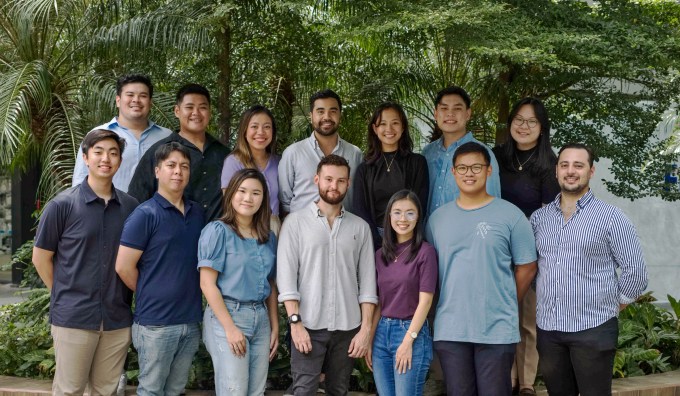
SaaS platform klikit saves restaurant kitchens from “tablet hell” • TechCrunch
The proliferation of supply solutions give shoppers a lot of solutions, but implies chaos for busy eating places that have to have to deal with orders throughout numerous apps and channels. Lots of kitchens cope with this by juggling several products at a time, one particular for every single application. Klikit wishes to help you save Southeast Asian foods firms from “tablet hell” by aggregating purchase information and facts from all apps into a person platform. Primarily based in Singapore, the startup just exited stealth method with $2 million in pre-seed funding.
The round was co-led by World wide Founders Money and Wavemaker Partners, with participation from Gentree Fund, AfterWork Ventures, Reshape Ventures, Nordstar, Pentas Ventures, Moving Capital, Gojek co-founder Kevin Aluwi, NasDaily’s Nuseir Yassin, YouTuber Lazar Beam and Radish Fiction founder Seung-yoon Lee. Strategic angel buyers incorporate executives from Gojek, YouTube and Flash Coffee.
Since launching seven months back, klikit’s SaaS system, klikit Cloud, has been applied to service additional than $2.8 million in orders across 150 brands in the Philippines, Malaysia, Indonesia, Singapore, Taiwan and Australia.
Buyers at the moment include things like Bistro Group (the Philippine franchisee of TGI Fridays, Tough Rock Cafe and Buffalo Wild Winds, Flash Coffee and ghost kitchen startups MadEats and Just Kitchen.
Klikit was founded in 2021 by Christopher Withers, who has a ton of encounter in the on-demand from customers space—he was formerly vice president of marketplaces at GoJek, chief system officer at Bangladesh ride-hailing system Pathao and launched UberEats in the Asia Pacific.
Through the pandemic, while at GoJek, Withers moved house to Australia to function remotely. He also owned and operated a ghost kitchen area.
Withers advised TechCrunch he’s normally been fascinated by the food items delivery room.
“I started my ghost kitchen for the reason that I have often wished to really encounter the problems of working a restaurant firsthand, alternatively than sit hypothesizing on the sidelines or from behind my laptop as I developed out several of these tremendous app marketplaces,” he mentioned.
All through that time, Withers was confused by the range and cost of platforms, products, application, adverts and social media he had to juggle. As a final result he wanted to obtain extra effective ways to handle them and start new models.
Withers points out that current F&B computer software aren’t suited for a lot of shipping places to eat and cloud kitchens, and a lot less than 2% of retailers in Asia have integrated their shipping orders with legacy stage-of-sale methods. This leaves kitchens and staff taking care of orders throughout unique apps and devices, which is not only time-consuming but also final results in skipped orders, faults, confusion and normal chaos.
“Many operators refer to this as ‘tablet hell’ and some of our shoppers had as several as 20+ devices—taking up an overall pantry closet’s truly worth of genuine estate—for a one kitchen spot!” Withers said.

klikit’s workforce
Klikit differentiates from legacy POS methods, which ended up made for solitary-brand name corporations, by enabling dining establishments and ghost kitchens to manage numerous meals manufacturers across places and channels on a single product. Characteristics incorporate updating menus across supply apps, which klikit is ready to do promptly mainly because it has formal API agreements with applications like GrabFood, foodpanda, GoFood and UberEats. It offers on-demand from customers obtain to historical details analytics (in distinction, many F&B application systems prohibit data to time-restricted viewings), including day by day product sales, merchandise mixes and channel breakdown.
Considering that a lot of restaurants in Southeast Asia often process shipping and delivery orders by means of social media like WhatsApp, SMS or audio messages, klikit also permits these orders to be extra to its order dashboard so they are bundled in its analytics.
If one of klikit’s clients has spare potential and equipment, they can signal-up for access to its virtual brand partnerships with creators and consumer makes. Klikit is now doing the job with creators who have a blended subsequent of 38 million in the Philippines and Australia to launch two “creator drops” in late 2022. Withers says klikit linked with top YouTubers simply because they have the clout to contend in opposition to fast food items giants, marketing and advertising-intelligent.
Klikit’s closest opponents incorporate Deliverect and NextBite, but Withers suggests he believes a regional startup like klikit will be successful simply because it can cement API partnerships with significant shipping applications.
The startup’s new funding was utilized throughout stealth mode to employ the service of 30 persons in six international locations. It will also use the funds for regional growth and including far more features by constructing its engineering crew.
In a assertion, Wavemaker Partners running lover Paul Santos said, “We see klikit resolving widely unaddressed challenges for restaurateurs everywhere you go, when also developing exceptional methods for creators and brand names to make earnings and interact with followers in totally new strategies. Their vision strategically provides alongside one another the converging and only growing developments in meals shipping and delivery and the creator economic system.”
